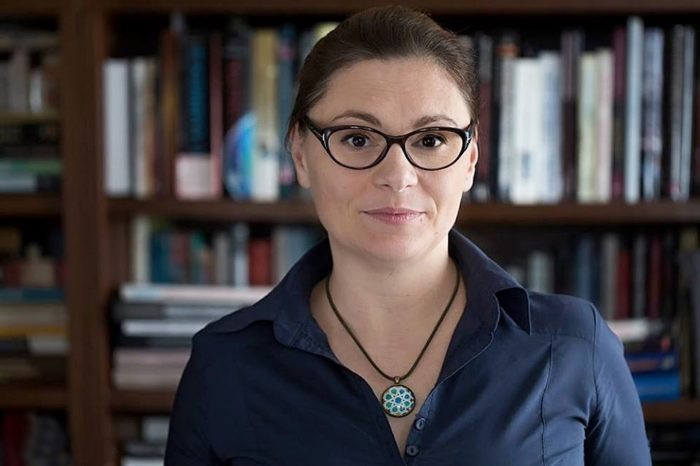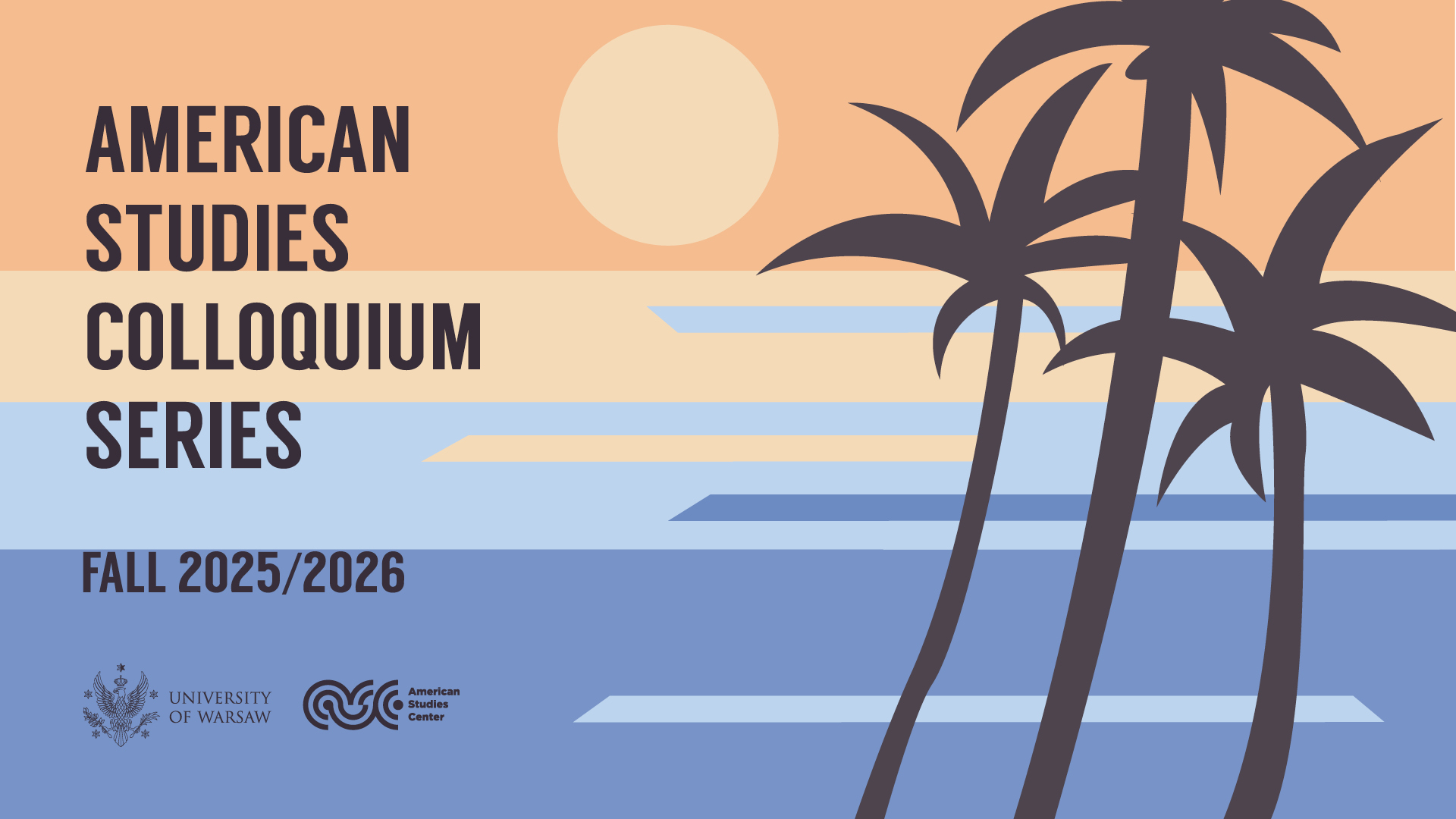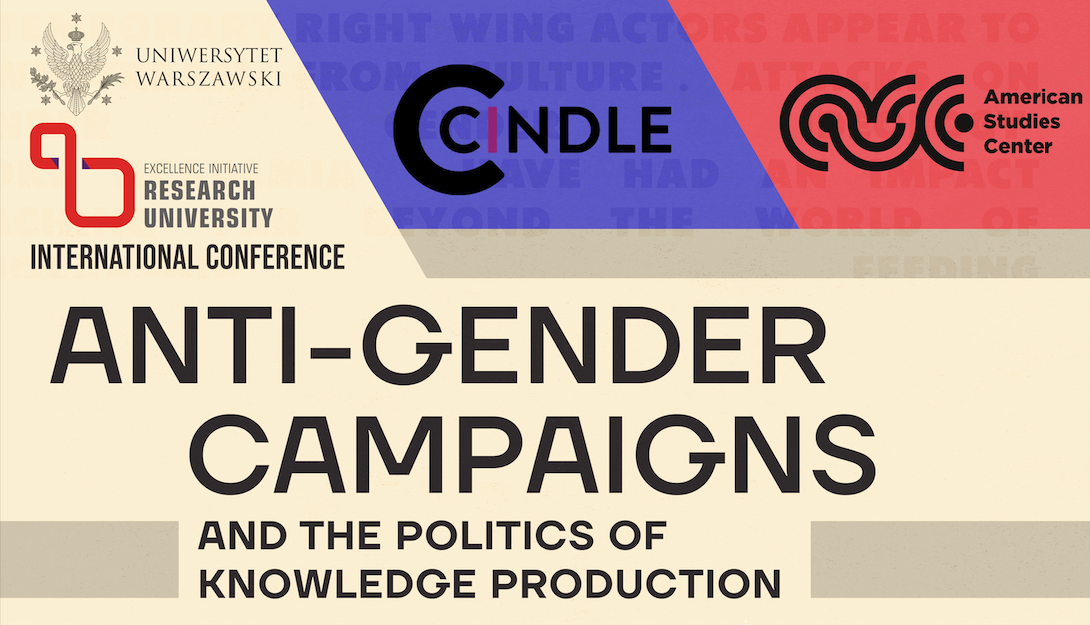We are pleased to announce a lecture by
Anna Mazurkiewicz
(University of Gdańsk)
Defining State-Private Network. American Freedom Committees During the Cold War
The lecture is going to be a part of the
American Studies Colloquium Series.
Thursday, March 14, 2019
at 4:00 p.m
Where?
American Studies Center, room 317,
al. Niepodległości 22, Warsaw.
What?
The Cold War (1947-1989) was dominated by the global rivalry between a totalitarian state steered from behind the walls of the Kremlin and a world power built on the ideals of democracy and freedom with a popularly elected leader occupying the White House. While both adversaries were engaged in extensive “political warfare” only one of them had to consider public opinion in order to stay in power and maintain legitimacy in order to conduct its foreign policy. Interestingly, the United States had to care for both the support of its own citizens but also for its allies in the so-called “free world”.
Given the global nature of the confrontation and the fact that most of it took place in the territories of the so-called “external empires” (regions dominated by the respective powers, or under their predominant influences), my interest is vested in the agency and role of the peoples originating from these territories. One particular group that interests me the most are the political exiles who had left the Communist-dominated regions and entered into complex relations with the Americans in order to fight for the liberation of their homelands from the Soviet yoke. While their actions have already been relatively well researched, mostly within the context of relevant ethnic or national historiographies, the American policy behind supporting the exile political organizations turns out to be more complex than it might have seemed and deserves a more thorough investigation.
Who?
Dr hab. Anna Mazurkiewicz is an Associate Professor at the Faculty of History at the University of Gdańsk (UG). Her main scholarly interests include the Cold War, United States after World War II, political activity of refugees from East Central Europe in the United States after World War II and the U.S. policy towards the countries of East Central Europe.

She has published three books: two related to the American response to elections in Poland (1947, 1989) and one on the role of the political exiles from East Central Europe in American Cold War politics (1948-1954). The next book will be on the Assembly of Captive European Nations (ACEN) in the context of American foreign policy during the Cold War (under contract, to be published 2020). Mazurkiewicz edited three volumes on migrations with special focus on transatlantic migrations, coercion in migration. In 2019 DeGruyter released a handbook “East Central European Migrations during the Cold War” also edited by her.
She is a graduate of UG (MA 1999; PhD 2006). She also studied at the California State University, Fresno (1997-1998), was APRF Fellow at the Notre Dame University (2002-2003), Kosciuszko Foundation Research Fellow at the IHRC at the University of Minnesota (2007-2008), Visegrad Fellow at the Central European University, Open Society Archives in Budapest (2010). She lectured in Germany, Slovenia and the US. As Kosciuszko Foundation Visiting Professor, she has taught multiple courses at State University of New York (Buffalo, 2012-2013) and Valdosta State University (2018). In 2017/18 as a recipient of the Fulbright Senior Award she conducted research at the Center for Russian, East European and Eurasian Studies at Stanford University.
What is more, prof. Anna Mazurkiewicz is a member of several Polish and foreign scholarly associations, the past President of the Polish American Historical Association (2017-2018), as well as the recipient of a number of awards including: the Oskar Halecki Prize (by PAHA) for two volumes she had edited: East Central Europe in Exile (2013), Miecislaus Haiman award for sustained contribution to the study of Polish Americans (2019) and most recently Willi Paul Adams Award for best foreign language book awarded by the Organization of American Historians (2019). She currently serves a Fulbright Program Ambassador in Gdańsk.




